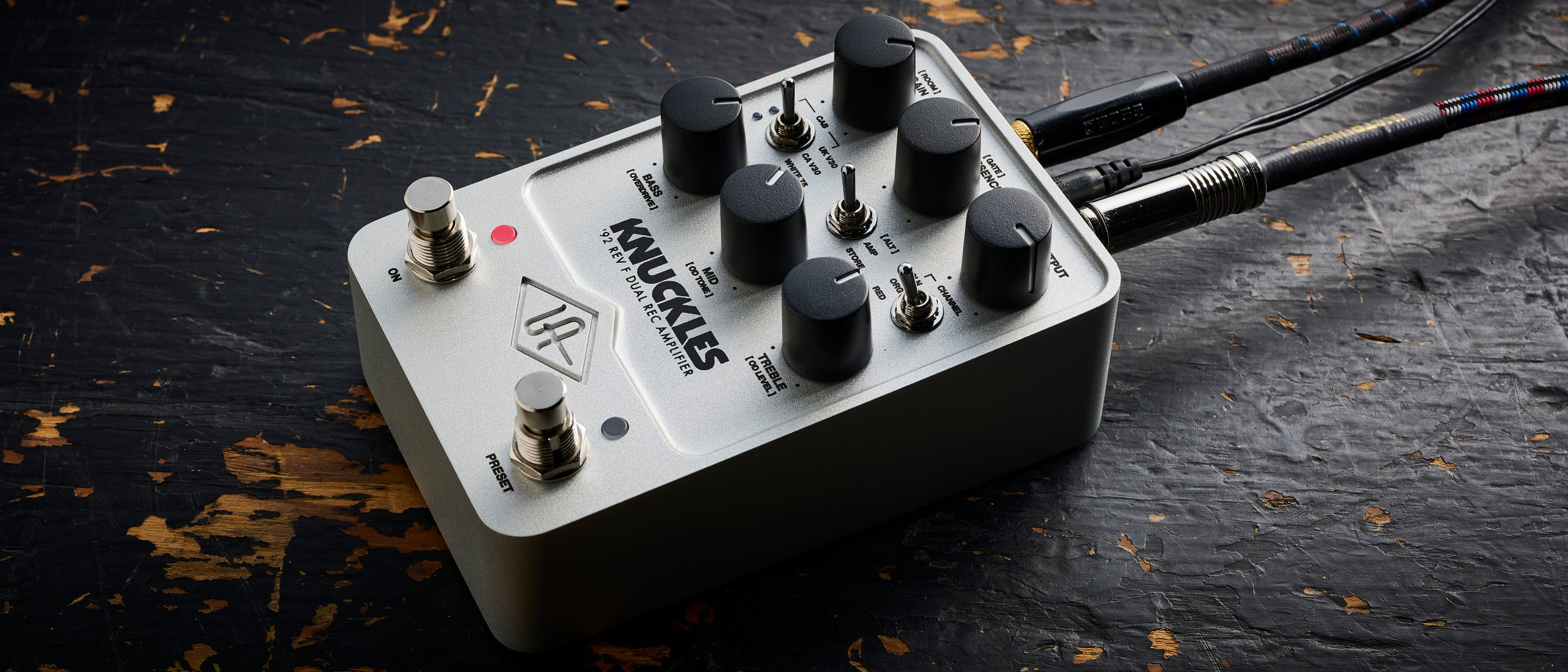Guitar World Verdict
In over 20 years of hardware and software modeling, this is hands-down the best-sounding emulation of Mesa’s shiny high-gain model I’ve come across. For quintessential US-style hard rock tones, this is the place to come.
Pros
- +
Excellent sounds
- +
Gig-worthy build quality
- +
Plenty of tweaking options
Cons
- -
No power supply included
- -
Single preset is potentially limiting
- -
App control works well, but won't always be convenient
You can trust Guitar World
Universal Audio UAFX Knuckles '92 Dual Rec: What is it?
The Mesa/Boogie Dual Rectifier requires no introduction, but we’ll give it one anyway - it’s the treadplate-clad amp that fuelled countless hard rock and heavy anthems throughout the ’90s and into the ’00s. Back when shorts were long, eyebrows were pierced and guitars were nearly always down-tuned.
But, it wasn’t just fans of nu-metal who appreciated the Dual Rec – Metallica, Foo Fighters, Blink-182 and many more employed its huge amounts of gain, gut-punching low-end and cutting, aggressive tones to power their albums and live shows.
However, the subject of this review isn’t a Mesa/Boogie product. It’s called Knuckles ’92, and is the latest in Universal Audio’s UAFX line of amp modeller pedals. These ‘go-direct’ boxes can function as a preamp/overdrive pedal, or when paired with a powered cab, PA system or audio interface, can replace your amp entirely both on stage and in the studio thanks to comprehensive onboard speaker modelling.
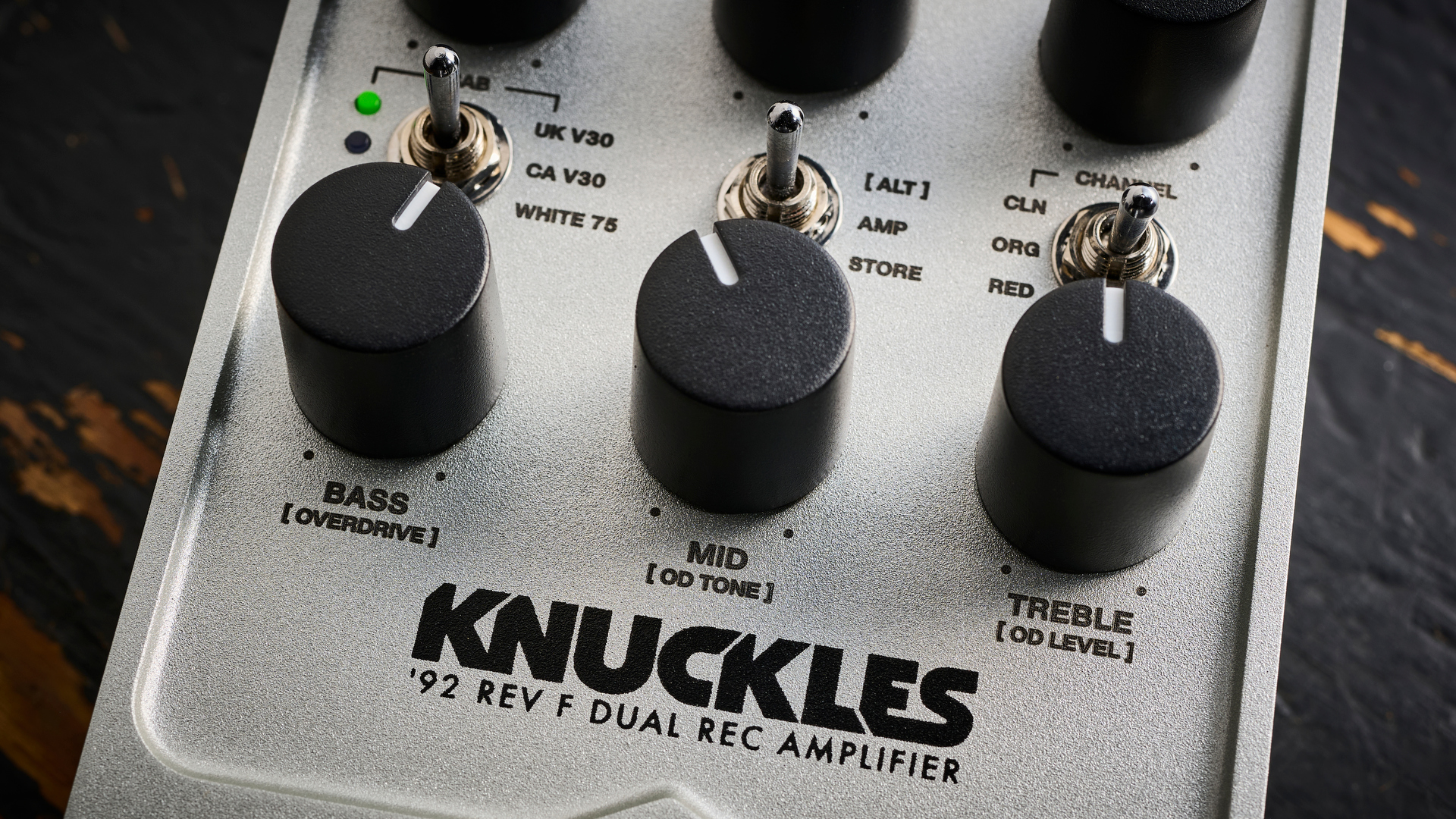
Having started with the ‘vintage classics’ (Fender and Vox) with its Dream ’65, Ruby ’63 and Woodrow '55 pedals before moving on to Marshall with the Lion '68, UA’s most recent drop of UAFX amp modelers sets its sights set on delivering authentic hi-gain tones. The ANTI 1992 takes on the Peavey 5150, and the Knuckles pedal I have in front of me looking squarely in the direction of the Dual Rectifier.
More specifically, it’s based on the Revision F version of Mesa’s gain-heavy brute, which offered increased clean headroom thanks to an overhauled circuit and power transformer, which in turn also helped to deliver the tight, punchy bass response we’ve become familiar with from the Dual Rectifier.
Universal Audio UAFX Knuckles '92 Dual Rec: Specs

Launch price: $457/£379/€430
Type: Amp simulation pedal with cabinet emulation
Controls: Gain, presence, output, bass, mid, treble, 3x mini-toggles, 2x footswitches
Features: Three channels, six cabinets (3 stock and extra 3 after pedal registration, 1 x onboard preset, software/app editing over Bluetooth/USB-C , 2 x selectable overdrives/rectifier type/power mode /channel styles (via app), editable signal flow and noise gate (via app|)
Connectivity: Stereo inputs, stereo outputs, USB-C, Bluetooth
Bypass: True, buffer, both (switchable)
Power: 9v, 400mA
Dimensions: 90x42x14 mm
Weight: 21oz/604g
Contact: Universal Audio
Universal Audio UAFX Knuckles '92 Dual Rec: Build quality
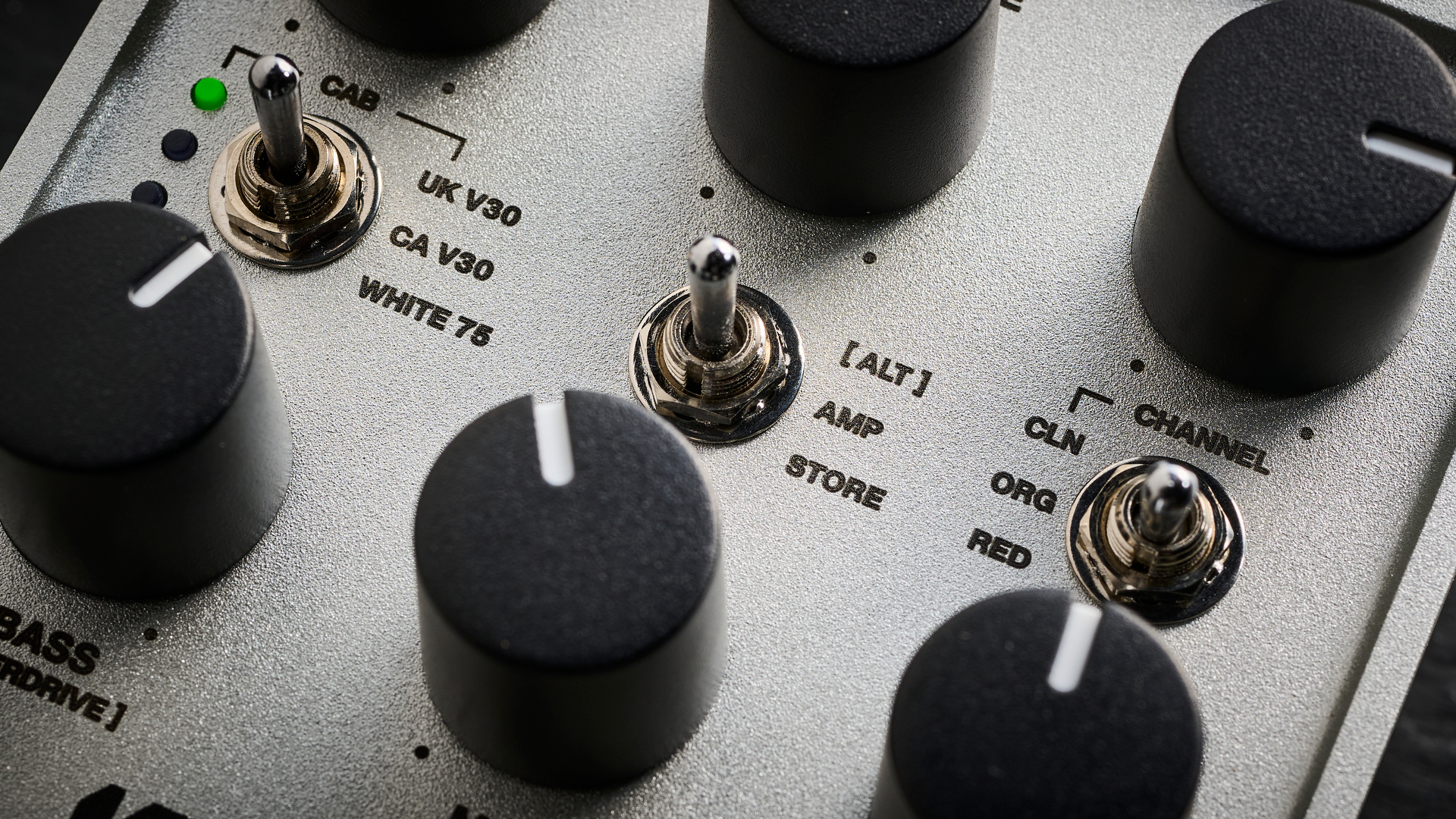
Build quality rating: ★★★★★
All the latest guitar news, interviews, lessons, reviews, deals and more, direct to your inbox!
The Knuckles arrives in UA’s familiar packaging, which, before I’ve even opened it gives that air of ‘premium’. Taking it out of the box, the first thing that will strike you is the sturdiness.
As with the other UAFX pedals, the Knuckles uses a die-cast casing which seems to be bulletproof – although testing that will ruin the slick aesthetic of the smart grey paint job.
It measures at 90mm wide, 140mm deep and 42mm high, placing it bigger than a standard compact pedal, but smaller than a double-sized option. The robust feel is backed up by its weight, which tips the scales at 604 grams – good job it lives on the floor! But all of this mass adds to my first overall impression of the Knuckles, and that’s ‘quality’.
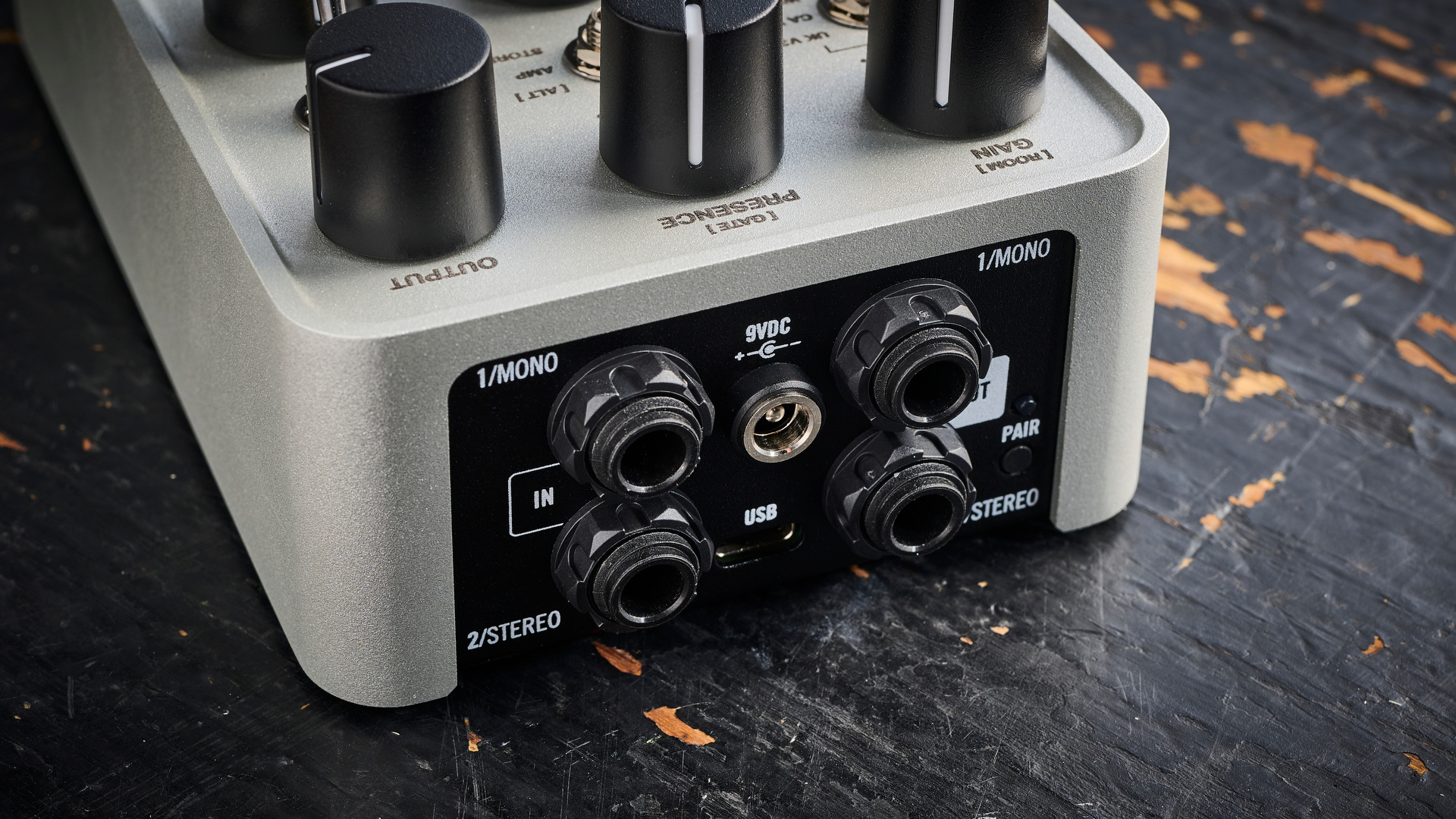
The switches are all metal, and the plastic rotary controls have a weighty feel with friction to their travel which means they turn nicely but will stay where you want them, even if you knick them lightly.
The only exception to this is the quartet of plastic output jacks, which, while giving no evidence of being a problem, do stick out amongst the otherwise top-notch components.
Also present on the rear of the pedal are the power connector, USB-C socket (for delivering firmware updates) and a Bluetooth pairing switch. The latter is small, and accompanied by an LED to show its status, which (somewhat frustratingly) is easily obscured by this reviewer’s thumb when pressing the switch.
It’s worth noting, that the Knuckles requires a power supply capable of delivering 9V at 400mA, and it’s not included with the pedal.
Universal Audio UAFX Knuckles '92 Dual Rec: Usability
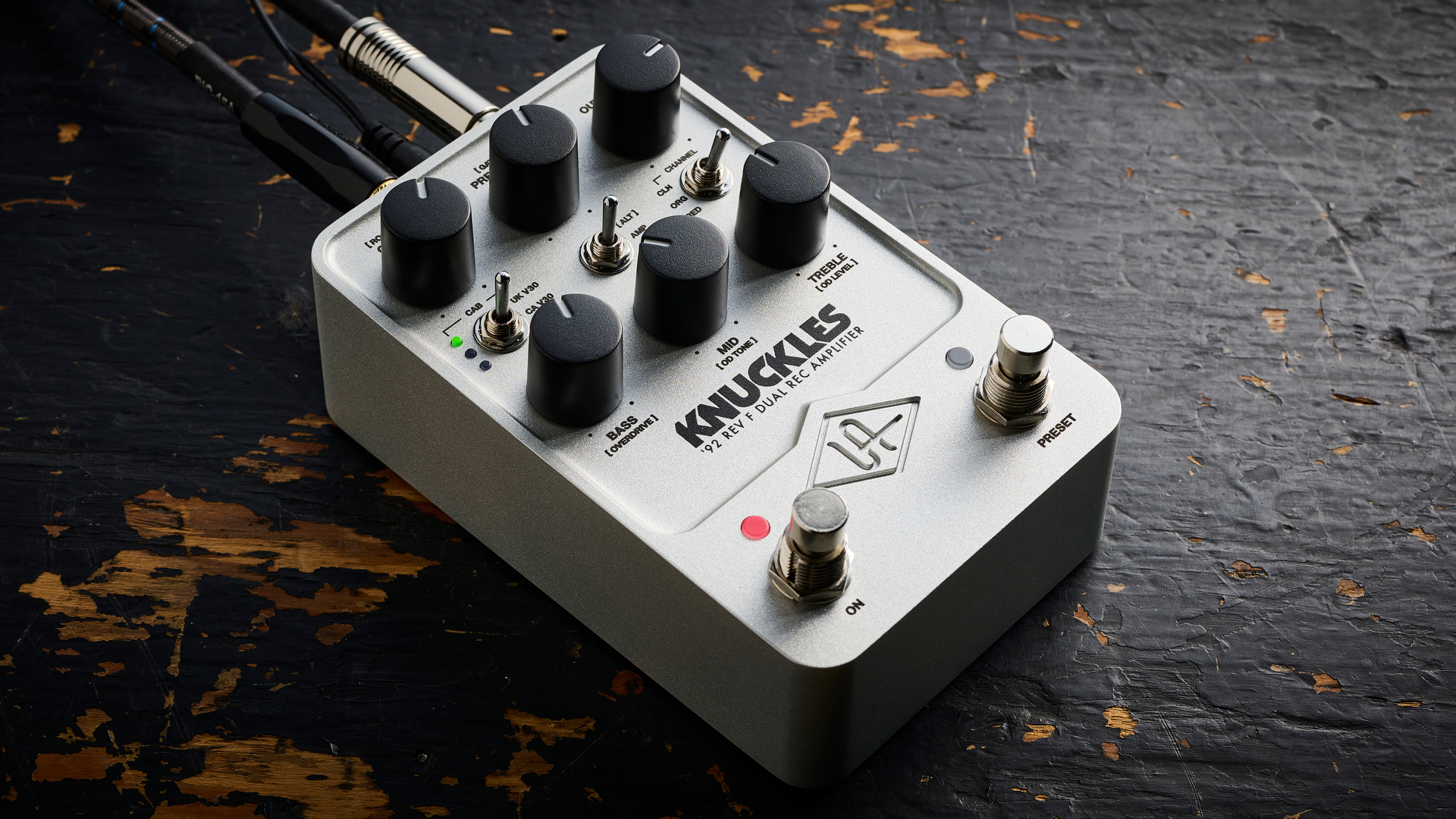
Usability rating: ★★★★½
The Knuckles is delivered with a similar template found on previous UAFX pedals. First, all three of the Dual Rectifier channels (Clean, Orange and Red) are present, and we get a choice of six cabs to choose from.
UA has fitted it with a pre-amp overdrive circuit, noise gate and room ambiance control for tailoring your sound
Three are pre-installed, offering a pair of VIntage 30-loaded 4x12 cabinet IRs, as well as a Marshall 4x12 cab captured with Celestion V75 speakers. Once you’ve registered the pedal, you’ll receive an additional trio of cabs which also become selectable from the pedal’s controls.
As well as the Rectifier’s core parameters, UA has fitted it with a pre-amp overdrive circuit (selectable between a Tube Screamer emulation or UA’s own TC boost), noise gate and room ambiance control for tailoring your sound.
The six pots are arranged as traditional amp controls, defaulting to Gain, Presence and Output for the top row and a three-band EQ section (bass, middle and treble) for the other trio. However, five of the knobs double as alternative controls, with Gain dialing-in ambiance level, Presence becoming the threshold for the noise gate, and the EQ section taking care of overdrive gain, tone and level respectively.
Each channel is selected via a three-position toggle switch, as are the cabinets. Meanwhile, a third toggle switch (in the middle) acts as a more utility-type selector for choosing between the amp’s control set or assigning the control knobs to their alternative purposes, while the third position is for storing your sound as a preset.
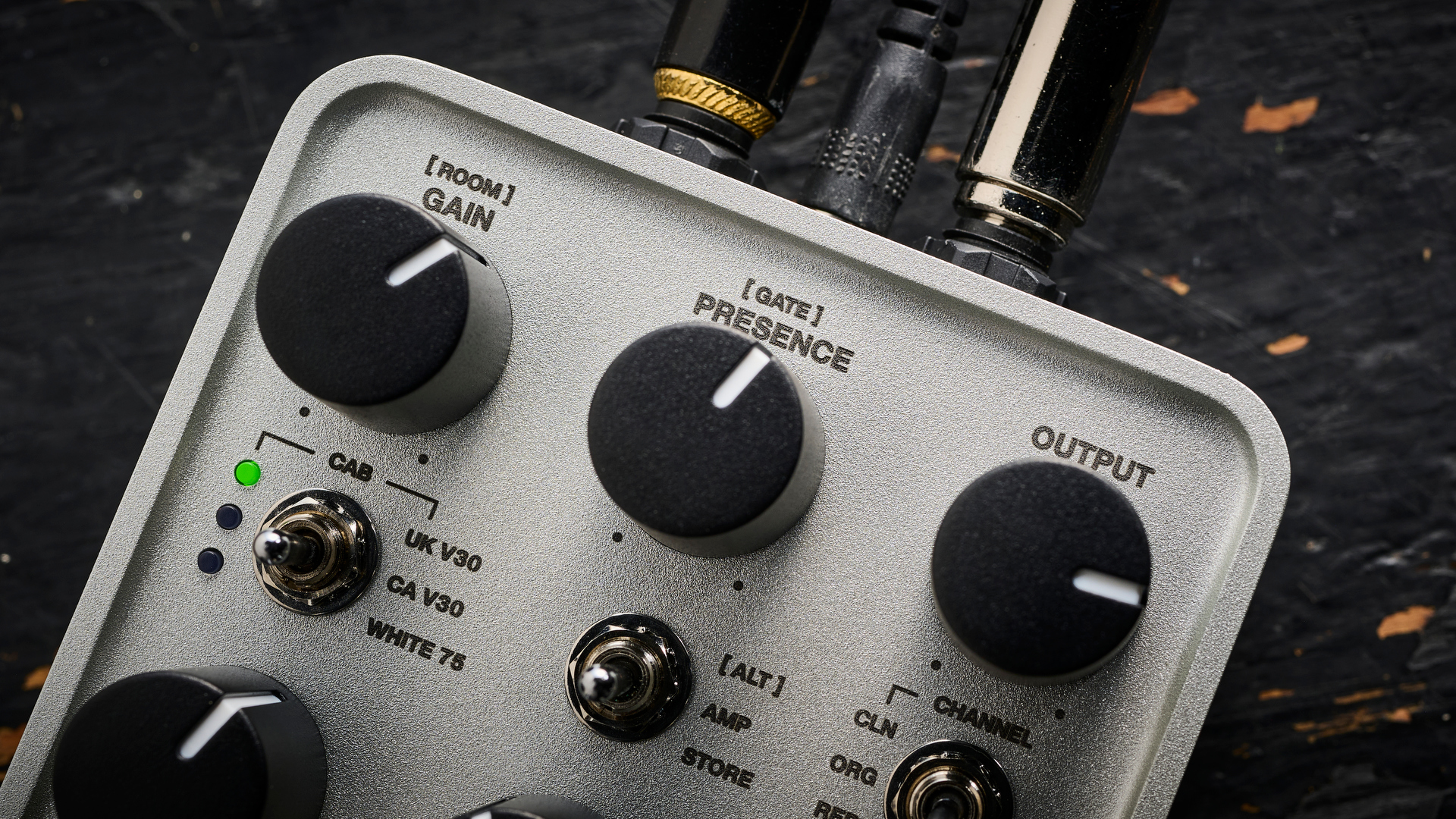
The Knuckles operates in one of two modes: Live or preset. As expected, Live mode –– engaged by the ‘On’ foot switch, is WYSIWYG. The controls’ state are exactly what you’re hearing.
Knuckles also operates in Preset mode, with the ability to store one preset inside the pedal. The preset can be stored via the middle toggle switch, then recalled at any point by stomping on the ‘Preset’ foot switch.
As well as storing a sound in standalone mode, connecting to the UA Control app offers deeper editing of the preset with functions including boost type, gate on/off, rectifier type (valve or solid state) and more.
Overall, the Knuckles (and indeed, the other UAFX pedals) are fairly easy to use for most of their operation. The alternative control set is labelled under each control which saves a bit of a learning curve, but I’d love to see the addition of wireless footswitch capability, which, if assignable, could offer a shortcut to say, switching channels or turning the overdrive circuit on/off.
Likewise, an additional preset or two wouldn’t go amiss, but with some careful planning, you can easily set your sounds up for a clean/crunch sound as the live setting, and a heavier setting on the preset (or vice-versa).
Universal Audio UAFX Knuckles '92 Dual Rec: Sounds
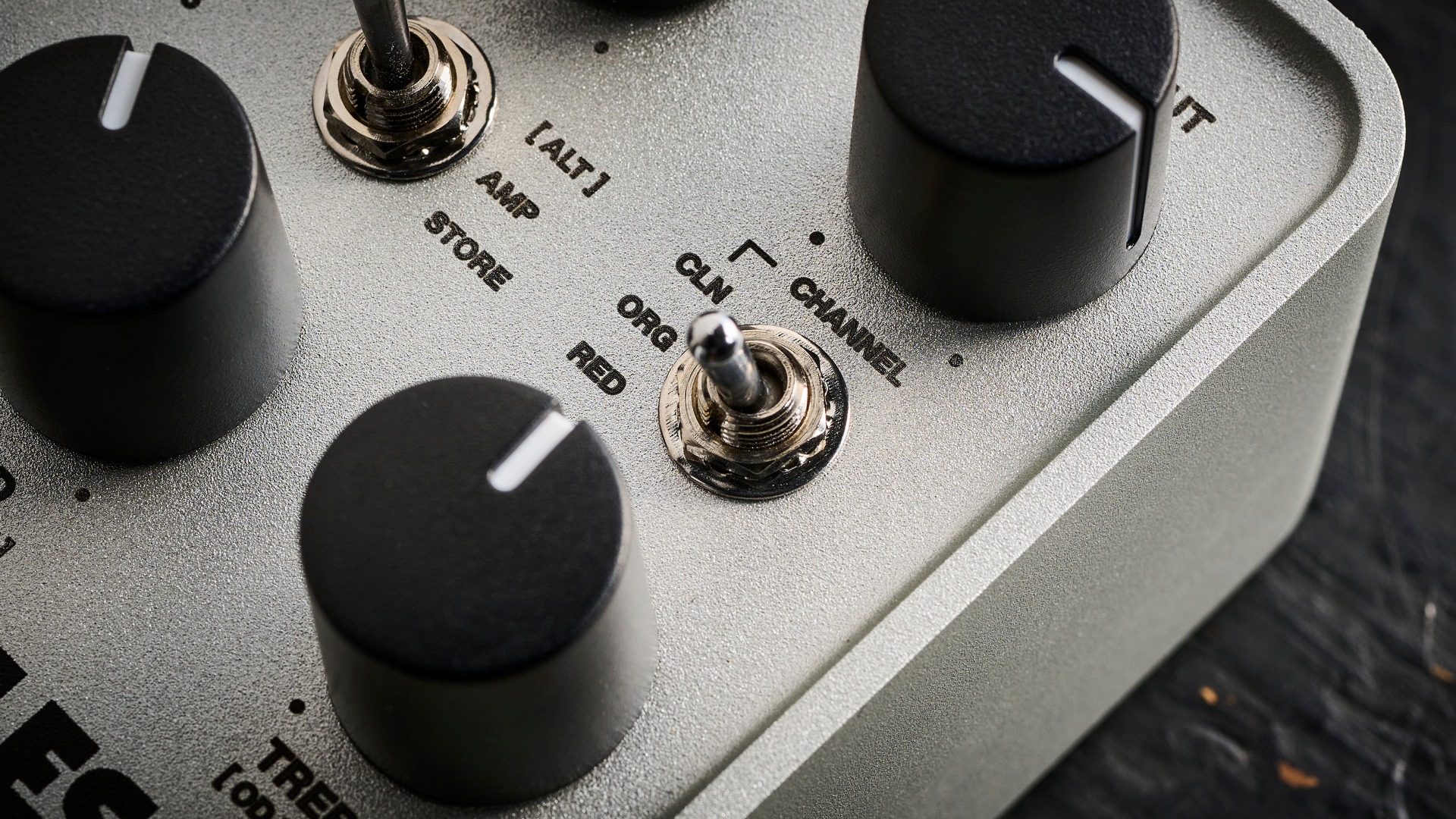
Sounds rating: ★★★★★
We’ve all heard dozens of Dual Rectifier emulations in the past, and it continues to be a modeler/plugin staple. So, when I heard Universal Audio had created its version, I was skeptical: 'Do we really need yet another Dual Rec impersonation?'
But, just as it has proved with its excellent emulation of the Marshall Super Lead in the Lion, so has UA done justice at the hairier end of our amp wishlist.
The Orange channel is likely to be home for most players, most of the time
The clean channel is capable of glassy pristine, but still has the spike that pushes towards crunch when you dig in. If you’re after that sound with massive headroom, you might not find it here throughout the range of the channel. But for grittier clean tones that will sound clean, with added harmonic cut (think Dave Grohl/Tom DeLonge), it’s got it in spades.
The Orange channel is likely to be home for most players, most of the time. One of the key things missing from the more ‘generic’ Dual Rectifier approximations we’ve encountered over the years is the combination of a thumping low-end that doesn’t muddy up, and the upper-mid/higher frequency throatiness that the real thing does so well. That’s here, and despite having loads of gain on tap (even in the interim channel), it doesn’t get lost. It responds equally well to drop-tunings as it does standard, all the while delivering the trademark heft that we love about the Dual Rectifier.
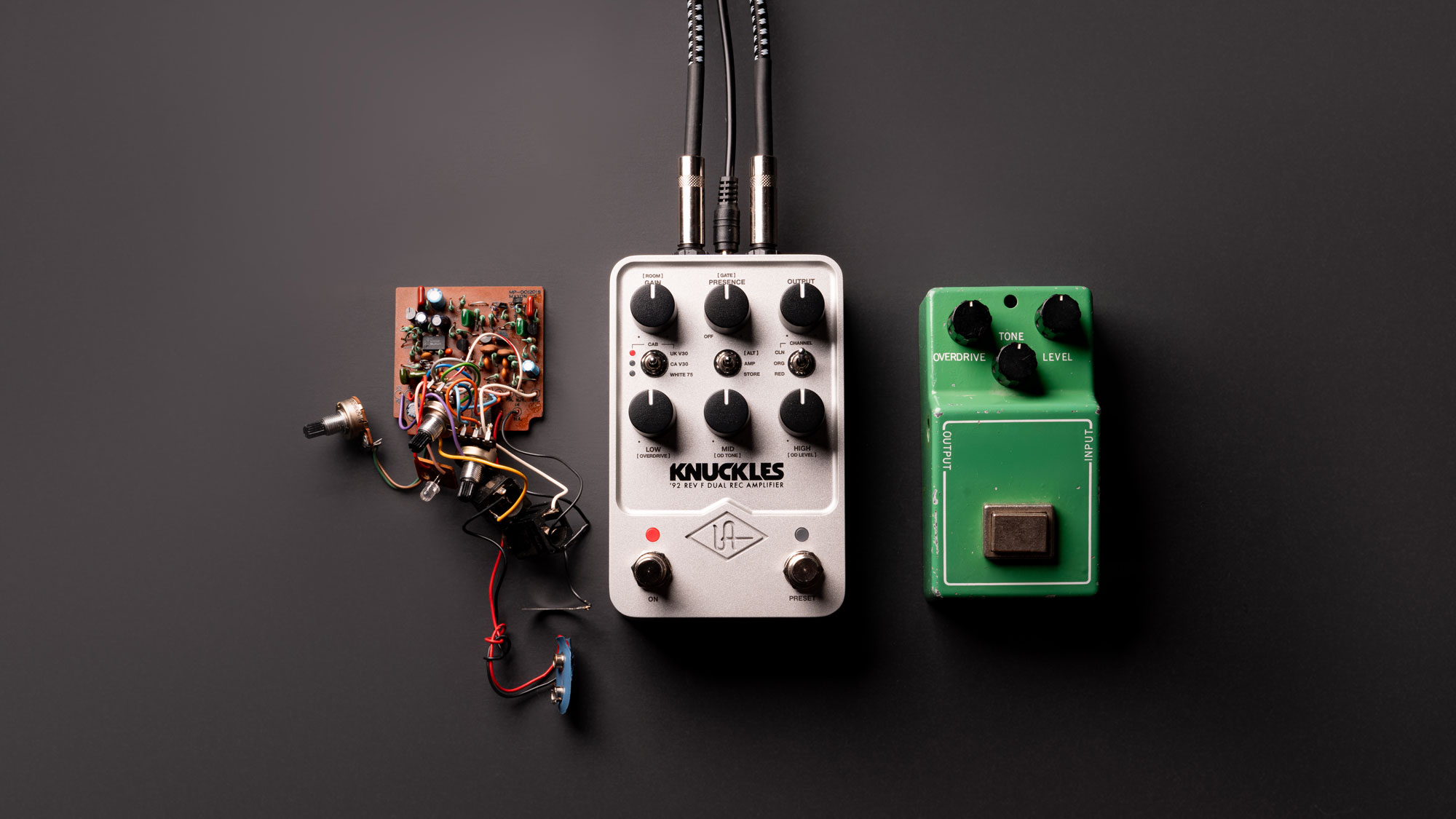
The Red channel takes things even further with, frankly, more gain than even the heaviest players are likely to require. It’ll serve well for adding sustain to lead playing, but take it too far to its extremes and to my ears it does start to get into fizz territory
The room ambience is a great addition, and perhaps one of the hidden surprises on the Knuckles.
Stick the boost in front with the classic low-gain/high-output settings and you just get more, and the on-board noise gate is like a vice, clamping down with speed while also being accurate enough to avoid that nasty choked feeling that can sometimes be present.
The room ambience is a great addition, and perhaps one of the hidden surprises on the Knuckles. When it comes to the Clean channel, it’s a nice way of adding some depth and dimension to your sound.
Traditionally, we’d shy away from ’verbing heavier rhythm sounds, as it can soften the attack and lose definition. But this is no hall reverb – if you’re using the knuckles to record ‘in the box’, applying a sprinkling of the ambiance can add a bit of air to everything, bringing it even closer to an amp/mic/room setup.
Universal Audio UAFX Knuckles '92 Dual Rec: Verdict
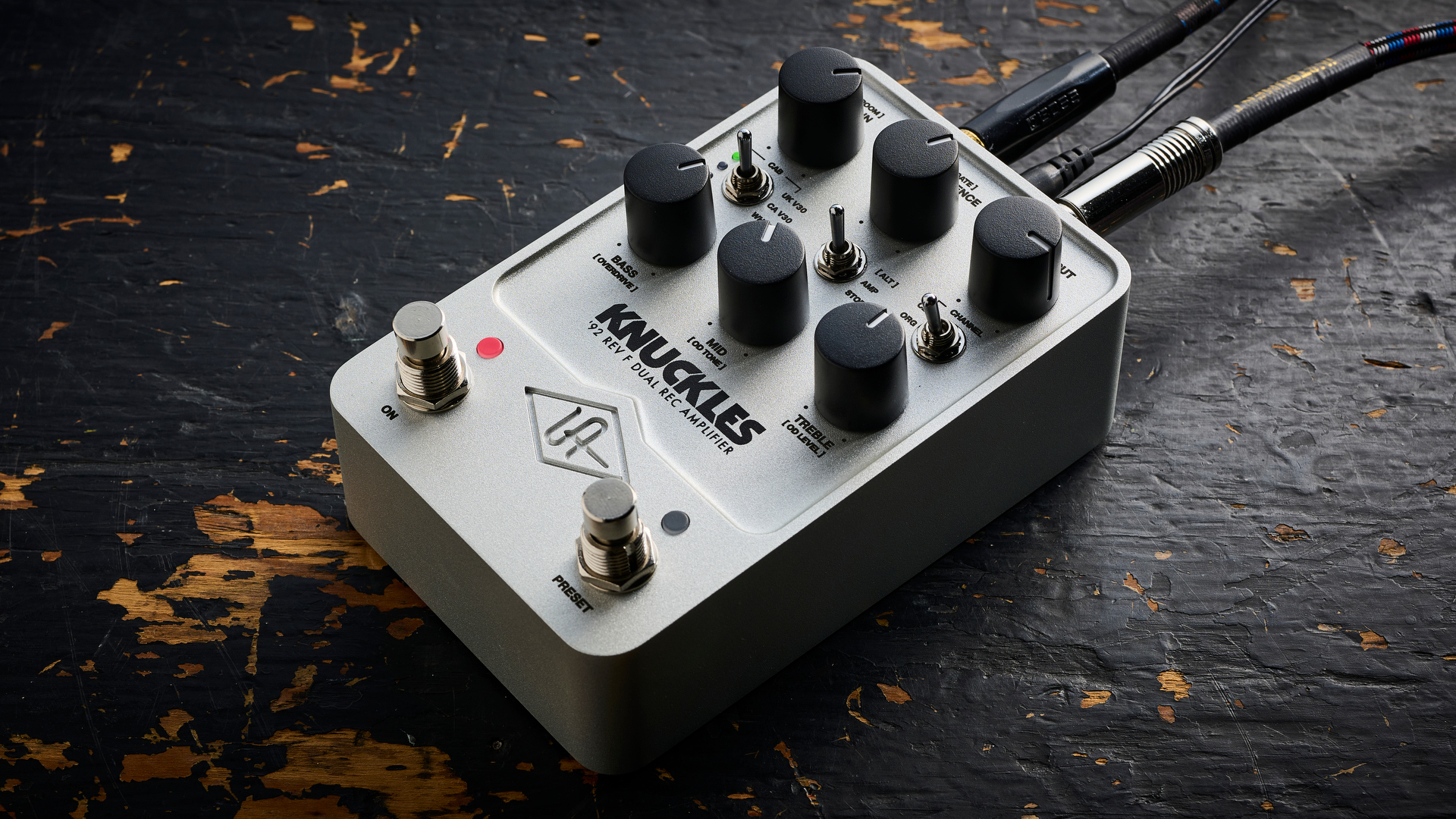
In a nutshell, the Knuckles is nothing short of fantastic. If you’re after the thick, harmonically rich tones that the Dual Rectifier provides, but delivered in a convenient, controllable format, look no further.
Outside of the build quality and tonal offerings, there are a few gripes. Not everyone wants to connect to a phone or software editor in order to make changes. As already mentioned, additional flexibility with presets and switching would be very welcome, and the lack of power straight out of the box is slightly disappointing (especially given that the Knuckles is not a cheap pedal). However, none of these points are enough to be a dealbreaker.
Guitar World verdict: In over 20 years of hardware and software modeling, this is hands-down the best-sounding emulation of Mesa’s shiny high-gain model I’ve come across. For quintessential US-style hard rock tones, this is the place to come.
| Test | Results | Score |
|---|---|---|
| Build quality | Weighty and solid-feeling | ★★★★★ |
| Usability | Dual-purpose controls and app functionality can be fiddly | ★★★★☆ |
| Sounds | Impeccable Dual Rec tones in a pedal | ★★★★★ |
| Overall | The perfect solution for classic high-gain performance in 2024 | ★★★★★ |
Universal Audio UAFX Knuckles '92 Dual Rec: Also try
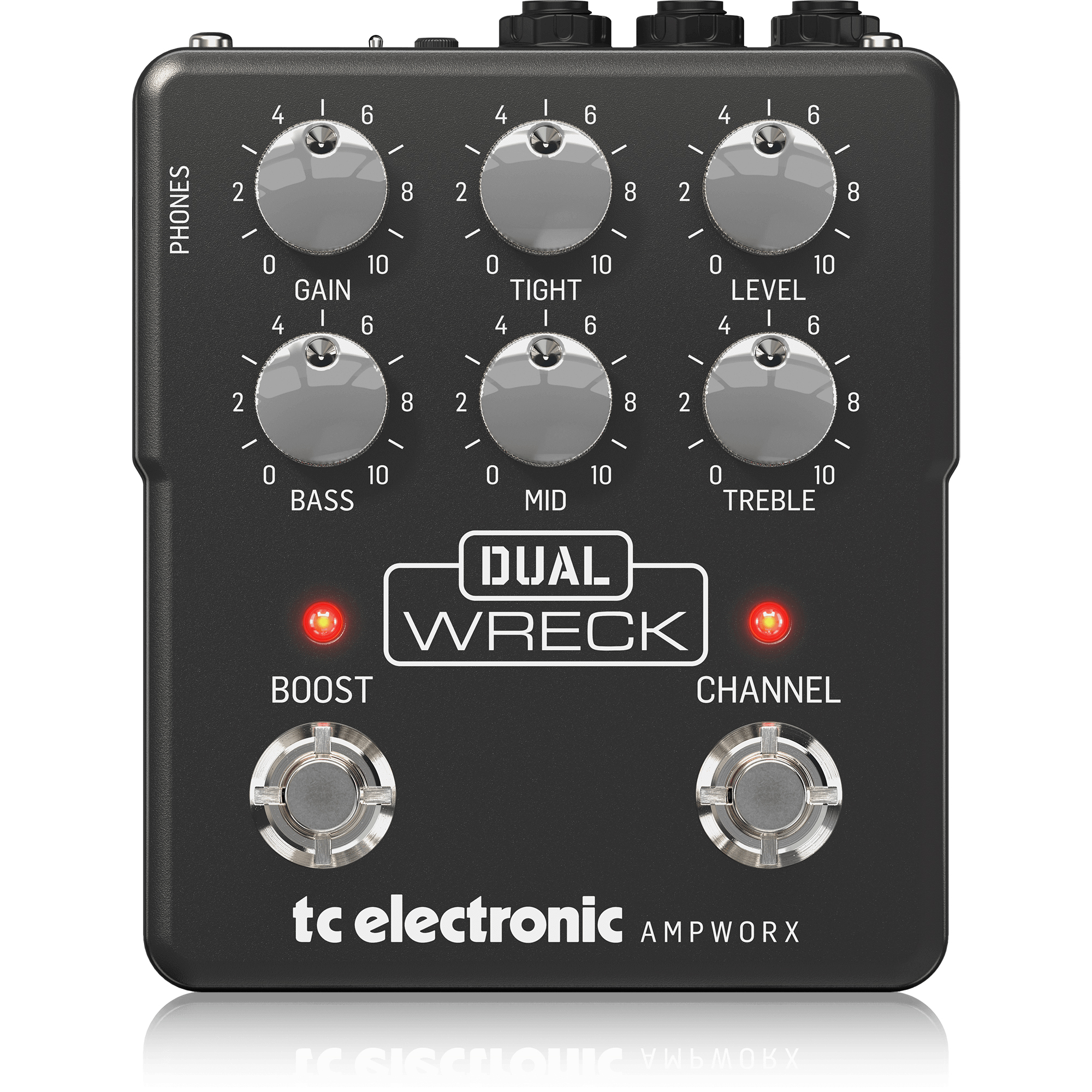
$169/£133
A more affordable emulation of the Dual Rectifier, TC's Dual Wreck delivers the essence of the US high-gain sound on a budget with two channels, pre/post boost and speaker emulation.
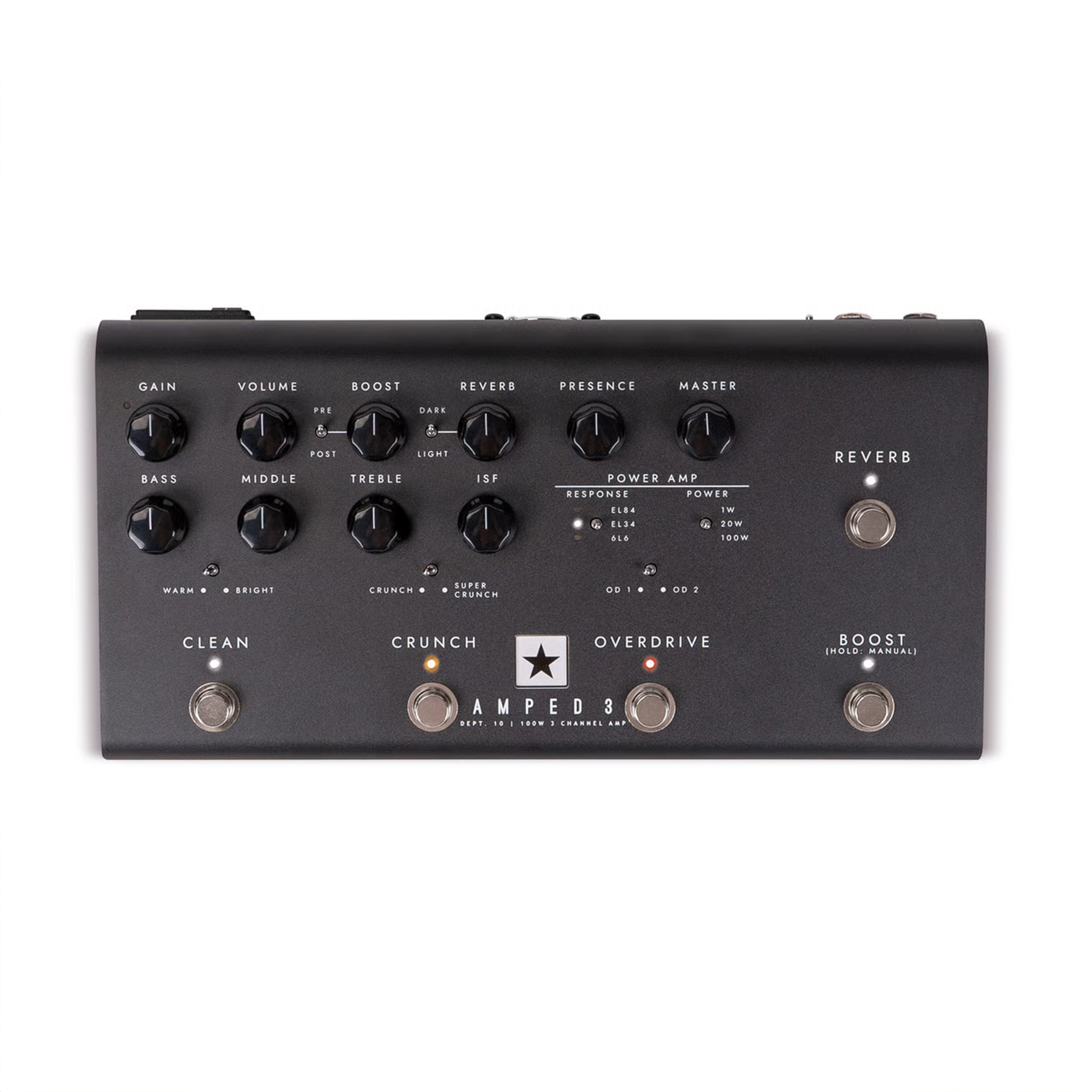
$538/£422
Blackstar’s highest-gain circuit ever is accompanied by a 100-watt power amp in its AMPED 3 pedal. It’s a much larger format, but offers an excellent solution for going direct or as a portable rig centrepiece.
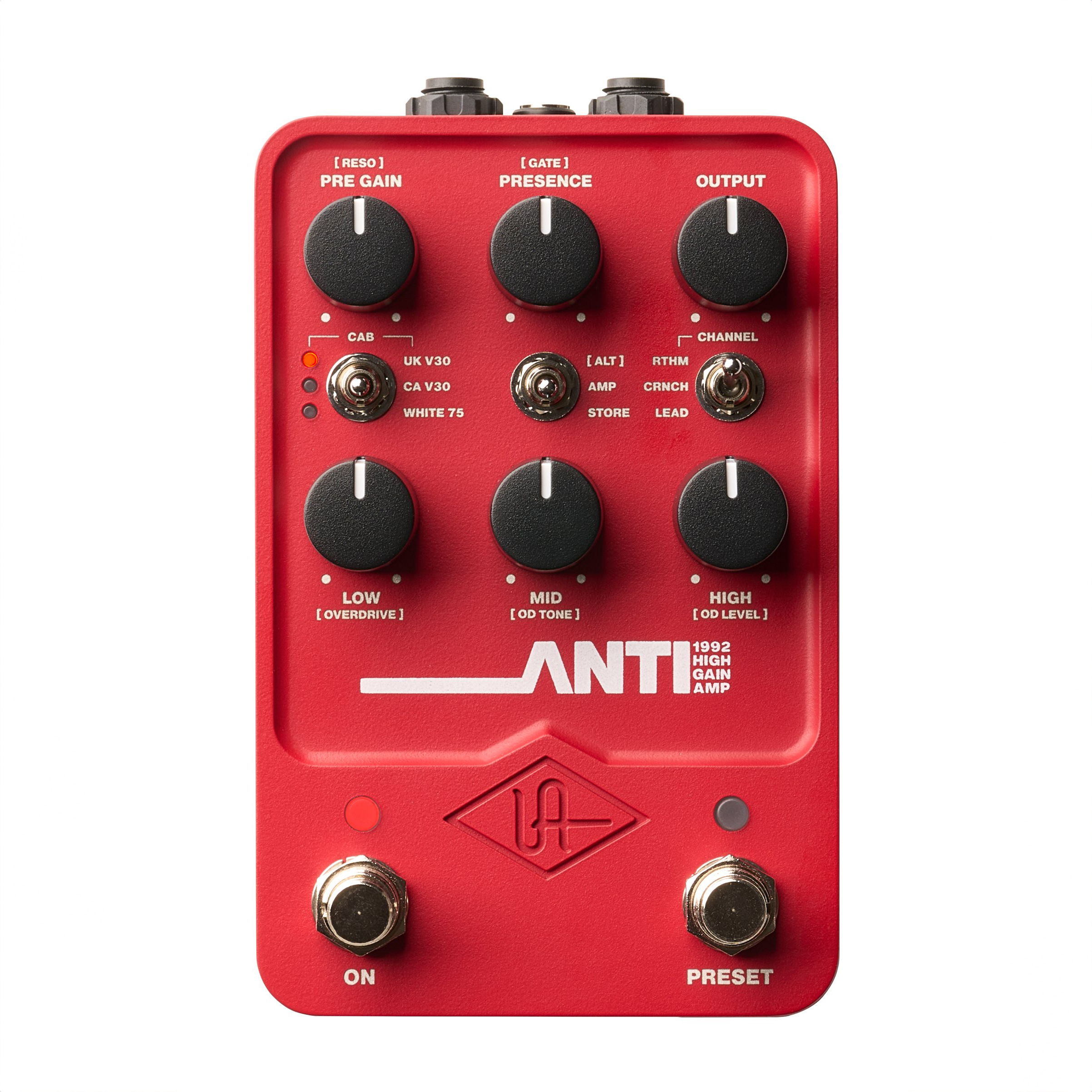
$457/£359
The 1992 shares many of the Knuckles’ features, but it’s based on the Peavey 5150. For a more pointedly ‘metal’ tone, it’s likely to be one of the main ‘other’ options for potential Knuckles owners.
Universal Audio UAFX Knuckles '92 Dual Rec: Hands-on videos
Universal Audio feat. Mastodon's Bill Kelliher
Rabbea Massaad
Sonic Drive Studio

Stuart has been working for guitar publications since 2008, beginning his career as Reviews Editor for Total Guitar before becoming Editor for six years. During this time, he and the team brought the magazine into the modern age with digital editions, a Youtube channel and the Apple chart-bothering Total Guitar Podcast. Stuart has also served as a freelance writer for Guitar World, Guitarist and MusicRadar reviewing hundreds of products spanning everything from acoustic guitars to valve amps, modelers and plugins. When not spouting his opinions on the best new gear, Stuart has been reminded on many occasions that the 'never meet your heroes' rule is entirely wrong, clocking-up interviews with the likes of Eddie Van Halen, Foo Fighters, Green Day and many, many more. If he's not playing the guitar, you'll likely find Stuart behind the kit playing Valerie to newlyweds.
